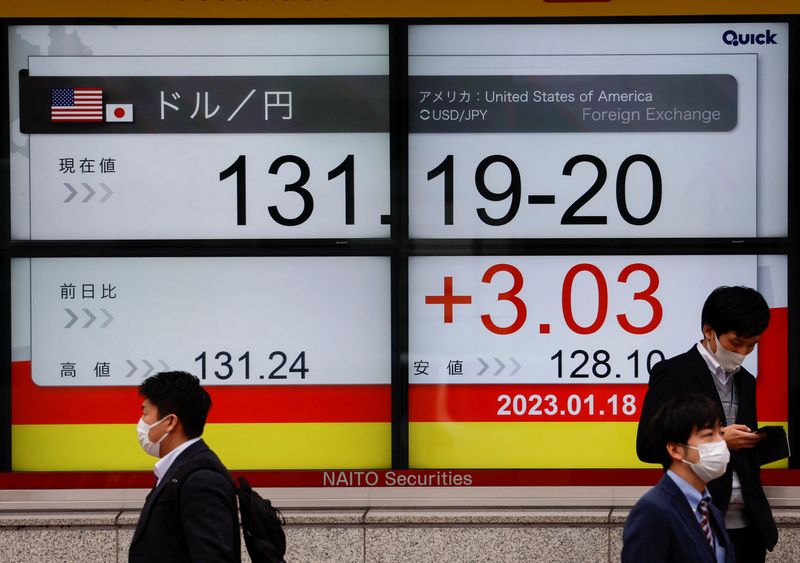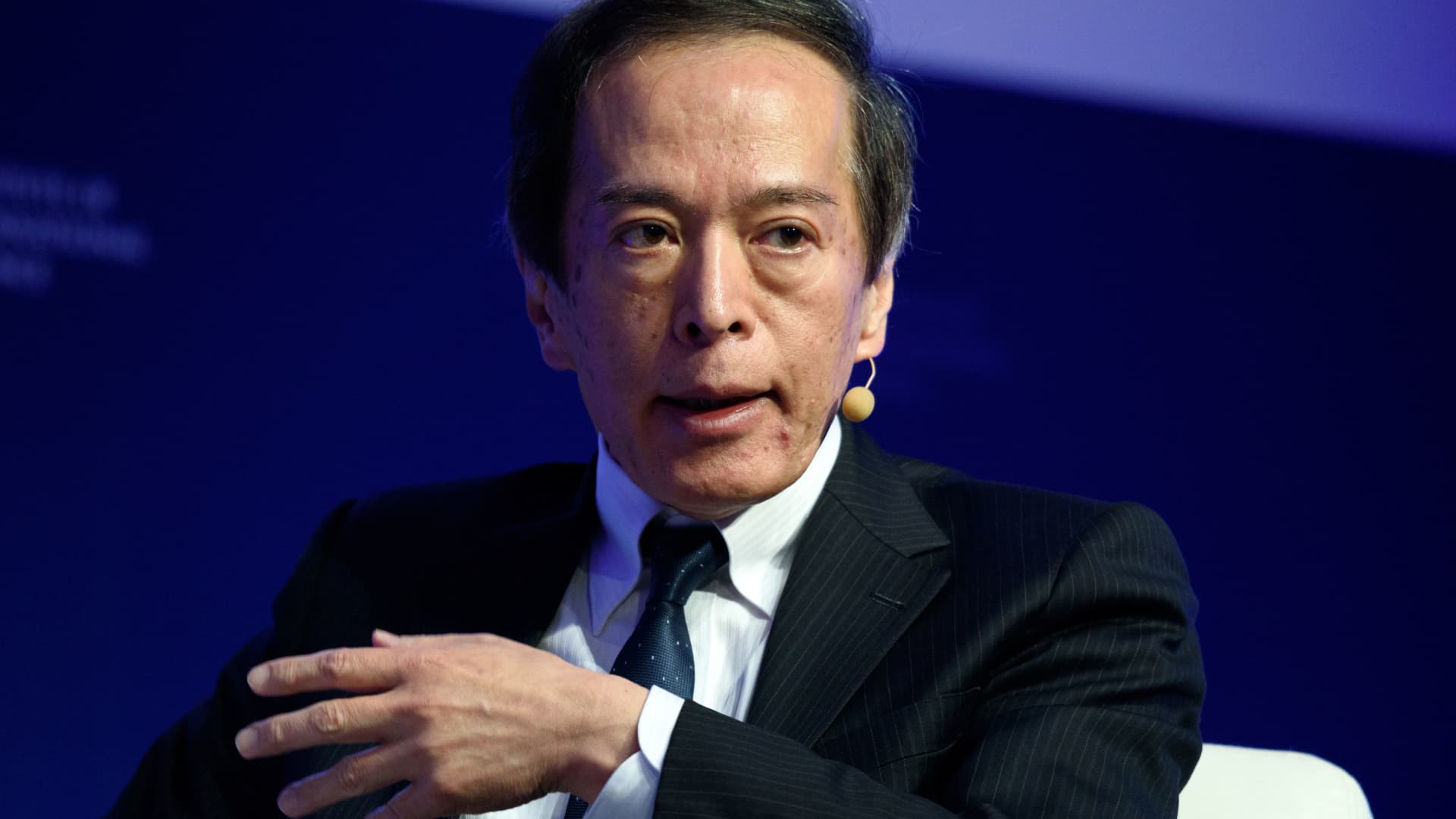Asia stocks ease, bonds brace for U.S. data test By Reuters
[ad_1]

© Reuters. FILE PHOTO: Passersby walk past electric monitors displaying the exchange rate between the Japanese yen against the U.S. dollar outside a brokerage in Tokyo, Japan January 18, 2023. REUTERS/Issei Kato
By Wayne Cole
SYDNEY (Reuters) – Asian shares slipped on Monday as investors hunkered down for U.S. inflation and retail sales data that could jolt the outlook for interest rates globally, while tempering or accelerating the recent spike in bond yields.
An air of geopolitical mystery was added by news the U.S air force had shot down a flying object near the Canadian border, the fourth object downed this month.
Officials declined to say whether it resembled the large white Chinese balloon that was shot down earlier this month.
In any case, it provided an extra excuse for caution and MSCI’s broadest index of Asia-Pacific shares outside Japan eased 0.1%, after losing 2.2% last week.
fell 0.5%, and South Korea 0.3%. were off 0.2%, while Nasdaq futures eased 0.3%.
The near-term direction for assets could well be determined by U.S. data on consumer prices and retail sales this week, with much resting on whether inflation continued to slow in January.
Median forecasts are for headline and core consumer prices to rise 0.4% for the month, with sales rebounding by 1.6%.
Risks could be to the upside given a re-analysis of seasonal factors released last week saw upward revisions to CPI in December and November. That lifted core inflation on a three-month annualised basis to 4.3%, from 3.1%.
There were also changes to the weightings for shelter costs and used car prices which might bias the CPI higher.
Bruce Kasman, head of economic analysis at JPMorgan (NYSE:), expects core CPI to rise 0.5% and sales to jump 2.2%, underlining the message of resilience from the bumper January payrolls report.
“Developed market labor markets have tightened in recent months against our expectations of easing,” says Kasman.
“The latest news reinforces conviction that we are not on a soft-landing path and that a recession will eventually be necessary to bring inflation back to central bank comfort zones.”
Markets have already sharply raised the profile for future tightening by the Federal Reserve, with rates now seen peaking up around 5.15% and cuts coming later and slower.
There is also a full slate of Fed officials speaking this week to provide a timely reaction to the data.
Yields on 10-year Treasuries are at five-week highs of 3.75%, having jumped 21 basis points last week, while two-year yields hit 4.51%.
That shift helped stabilise the dollar, especially against the euro which slipped 1.1% last week to hover at $1.0670, well away from its early February high of $1.0987.
The dollar also got a leg up on the yen on Friday when reports emerged Japan’s government was likely to appoint academic Kazuo Ueda as the next Bank of Japan governor.
The surprise news sparked speculation about an early end to the BOJ’s super-easy policies, though Ueda himself later said it was appropriate to the current stance.
The dollar was last holding at 131.50 yen, after bouncing from a low of 129.80 on Friday.
The rise in yields and the dollar has been a burden for gold prices, which was stuck at $1,862 an ounce compared to an early February peak of $1,959. [GOL/]
Oil prices eased a touch after jumping on Friday when Russia said it planned to cut its daily output by 5% in March after the West imposed price caps on Russian oil and oil products. [O/R]
dipped 36 cents $86.03 a barrel, while fell 35 cents to $79.37.
[ad_2]
Source link


